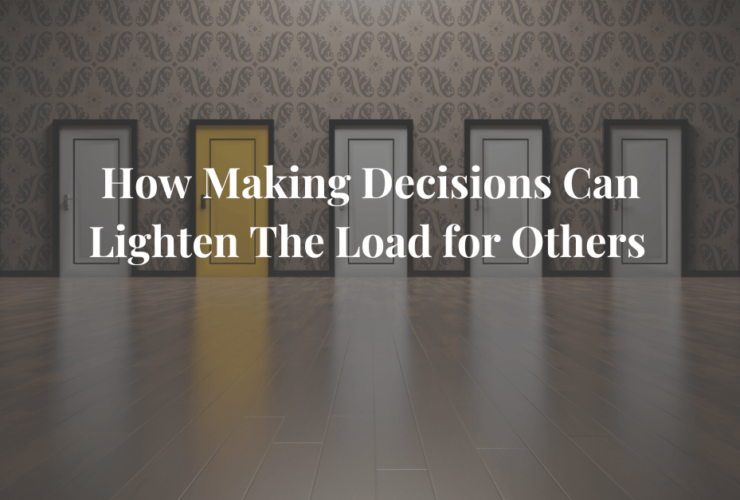When Someone Fails to Meet Your Expectations
At times, the people in your life will fail to meet your expectations. Maybe they’ll show up late to a date, maybe they won’t wash their dishes, or maybe they won’t say thank you after you gave them a gift. When our expectations aren’t met, it’s frustrating, disappointing, and sometimes flat out annoying.
Unlike the comedian, Bo Burnham, I’m not going to sarcastically advise you to lower your expectations to avoid disappointment.
(Although I do recommend you listen to his song called “Lower Your Expectations,” not because it provides anything valuable, but because it’s pretty funny…Disclaimer: don’t listen to it with small children in the room).
Instead, to help reduce your daily frustrations with other human beings, I’d like to offer some things you can try internally (in the way you process your thoughts and feelings) to help you feel less frustrated and more empowered whenever someone’s behavior falls short of your expectations.
Here’s The Internal Game Plan
1. Consider That Common Sense isn’t Common
Each of us has our own set of expectations of how other people should act. These expectations are usually based on what some might call “common sense.” But any good sociologist will tell you that what’s “common” is cultural, not universal, and that our understanding of common sense is shaped by our socialization.
Our socialization includes: how we were raised, the social identities we hold, our prior experiences, prior interactions with other human beings, and many other things.
And since no one’s socialization perfectly matches another’s, we all have a unique list of expectations and wildly different ideas about what qualifies as reasonable behavior.
As you might expect, this can cause a LOT of miscommunications, because when another person’s expectations don’t match up with yours, their behavior (which they may believe is perfectly reasonable) might seem completely unreasonable to you.
So when someone’s behavior is bothering you, you can reduce some of your frustration by “zooming out” from the thought “I don’t like what they did, I wish they wouldn’t have done that.” and begin developing a more well-rounded understanding of potential reasons why the person acted that way.

If you consider the possibility that their socialization was different from yours, and think about how that might affect their decisions, it might help you make sense of why they are behaving differently than you’d like them to.
2. Don’t Assume “They Know Better” if You Haven’t Discussed This Behavior with Them Before
Part of our frustration with other people’s actions stems from our assumption that the other person “knows better” than to act in ways that we perceive to be unreasonable.
Although in many cases that may be true, assuming the other person knows their actions are bothersome to you may lead you to feel resentment or frustration towards that person even if you’ve never communicated your expectations to them before.

As a general rule of thumb, I’d say it’s safe to assume that miscommunications are FAR more common than intentional disrespect or carelessness. (Unless of course, this person has a track record of being intentionally disrespectful).
When someone fails to meet your expectations, ask yourself, “Is it possible that this person doesn’t know that this behavior is bothering me?” or “Have I expressed to this person that their behavior has bothered me in the past?” And if they might not know, and you haven’t expressed it to them, then it would probably be a good idea to attempt an open and honest conversation with them about what’s bothering you.
3. Respect the Autonomy of the Other Person
No matter how strong our preferences are, adults can technically do whatever they want to. No matter how much we tell ourselves “they shouldn’t have done what they did” or “I don’t like their behavior,” we can not make them do what we want.
And we shouldn’t try to, because that would be manipulative.
As someone who has gotten unreasonably angry when someone failed to do something I wanted them to do, I want you to know that trying to change other people’s behavior is not worth your energy and it’s potentially damaging to your relationships.
So if you communicate your feelings, preferences, and expectations to someone and they don’t care, or they clearly don’t want to change their behavior. Then don’t try to make them change their mind.
Don’t try to make them care.
Don’t try to make them change.
Because ultimately, they are the captains of their own lives, just like you are the captain of yours.
When it comes to this, the only thing we can control is how we respond. So focusing on what we can control (i.e. ourselves) will feel a whole lot better than trying to force someone to change against their will (and making them unhappy in the process).
Besides, allowing people to be who they are is one of the most loving things you can do for anyone.
4. Take Your Power Back: Take Ownership of Your Own Happiness
By getting upset when another person fails to meet our expectations, we place our emotional health in that other person’s hands. We hand our power over to them.
This is a losing battle for us, because what we’re really telling ourselves when we allow other people’s behavior to disrupt our happiness is, “If this person doesn’t act how I want them to, then I cannot be happy.”
But the unfortunate reality is: there will always be people who behave in ways we don’t want them to.
And if we walk through our entire lives with the belief that other people have control over how much happiness we experience, we could severely limit our potential for joy in our lives.
If you can take on the attitude that the only person who is responsible for your happiness is you, then you have all the power you need to move away from the frustration of unmet expectations and enjoy the present moment despite other people’s behavior.
(P.S. For a more in depth talk about how to mentally achieve this one, I highly recommend listening to Brooke Castillo’s podcast episode called “The Manual.” Her coaching tools have helped me for YEARS.)
In conclusion,
While I can totally understand why unmet expectations feel frustrating, disappointing, and annoying, I think a lot of times this frustration comes either from
1. miscommunications
or
2. wanting someone to be something that they’re not.
If we do our diligence with communicating to the people in our lives and they still don’t want to do what we want them to, then all there is left to do is look inwards and say “This isn’t about them, they can be who they are, and I am capable of being happy despite that.”
Did this post resonate with you? If so, I’d love to hear from you! Leave a comment or send me a message to share your thoughts. For more uplifting content, check out some other posts on my blog, follow me on instagram @morgan_barbret, or sign up for the Self Love Atlas Newsletter!
Cheers,
Morgan Rita Barbret






The real definition of love is when you love unconditionally. It is impossible to make people happy all the time. I feel the secret to a long loving relationship is to understand that everyone has shortcomings, and love them anyway. There are times you may be disappointed. But your love for that person overcomes your disappointment. I feel that is the secret to a long and happy life.
Beautifully said Jerry!!!
Unconditional love is a beautiful thing and we’d all benefit from giving and receiving it ❤️